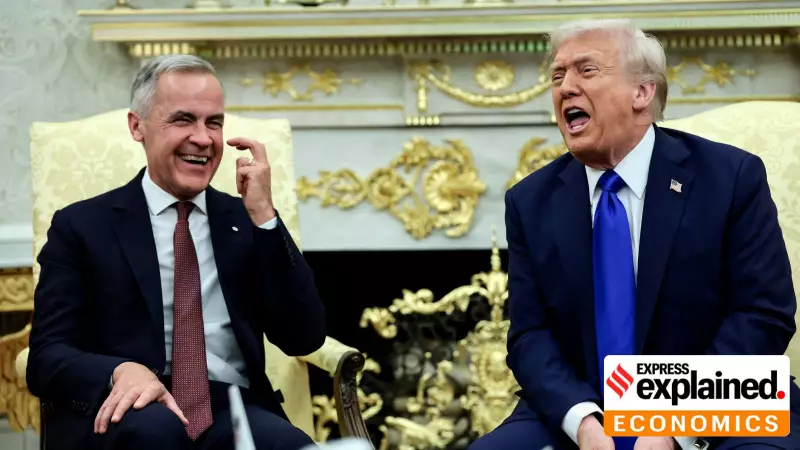
In a move that could send shockwaves through international markets, former US President Donald Trump has floated the idea of imposing a universal 10% tariff on all Canadian imports if he returns to power. This bold proposal represents a significant escalation in trade policy that could fundamentally alter North American economic relationships.
The Universal Tariff Proposal: Breaking Down the Numbers
Trump's vision involves implementing what he calls a "universal baseline tariff" on all foreign goods entering the United States. The 10% levy on Canadian products would be particularly significant given the deep economic integration between the two neighboring nations. Canada currently stands as America's second-largest trading partner, with bilateral trade exceeding $800 billion annually.
Why This Matters for India
While the immediate impact focuses on US-Canada relations, the implications for India are substantial and multifaceted:
- Supply Chain Realignment: Indian exporters might benefit as US businesses seek alternative suppliers to avoid tariff-heavy Canadian goods
- Precedent Setting: A successful implementation could embolden similar protectionist measures against other trading partners, including India
- Global Trade Stability: Such aggressive tariff policies could destabilize the delicate balance of international commerce that Indian businesses rely upon
The Historical Context: Trump's First-Term Trade Wars
This isn't Trump's first foray into protectionist trade policies. During his previous administration, he renegotiated NAFTA, replacing it with the US-Mexico-Canada Agreement (USMCA). However, the proposed universal tariff represents a more aggressive approach than his previous targeted measures.
Potential Consequences for Global Commerce
Economic analysts suggest several possible outcomes should this policy be implemented:
- Retaliatory Measures: Canada would likely respond with equivalent tariffs on US exports
- Inflationary Pressure: American consumers could face higher prices for everything from automobiles to agricultural products
- WTO Challenges: The move would likely face legal challenges through international trade bodies
- Investment Uncertainty: Cross-border investments between the US and Canada could face new barriers
The Bigger Picture: What Indian Businesses Should Watch
For Indian companies with international aspirations, this development serves as a crucial reminder about the volatility of global trade relationships. Diversifying export markets and strengthening domestic supply chains becomes increasingly important in such an unpredictable trade environment.
The proposal also highlights the enduring influence of protectionist sentiment in Western economies, suggesting that Indian exporters must remain agile and prepared for sudden policy shifts in key markets.






